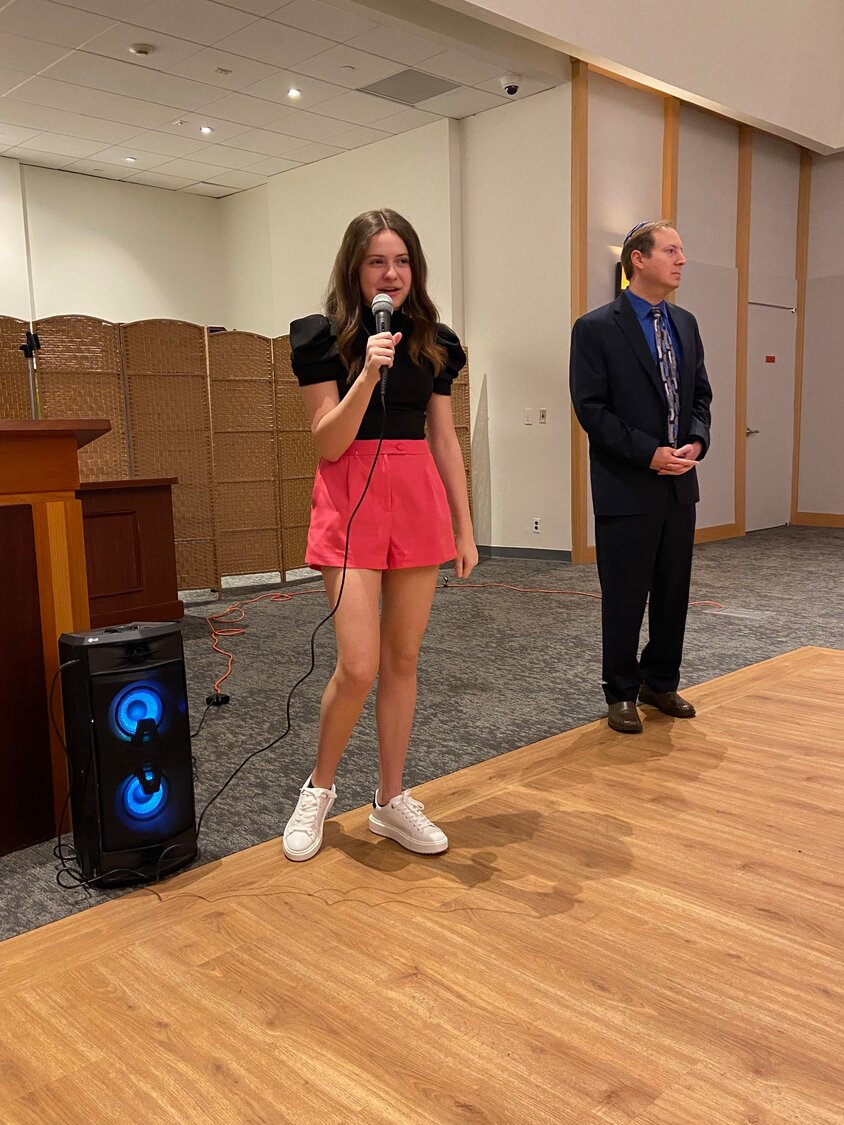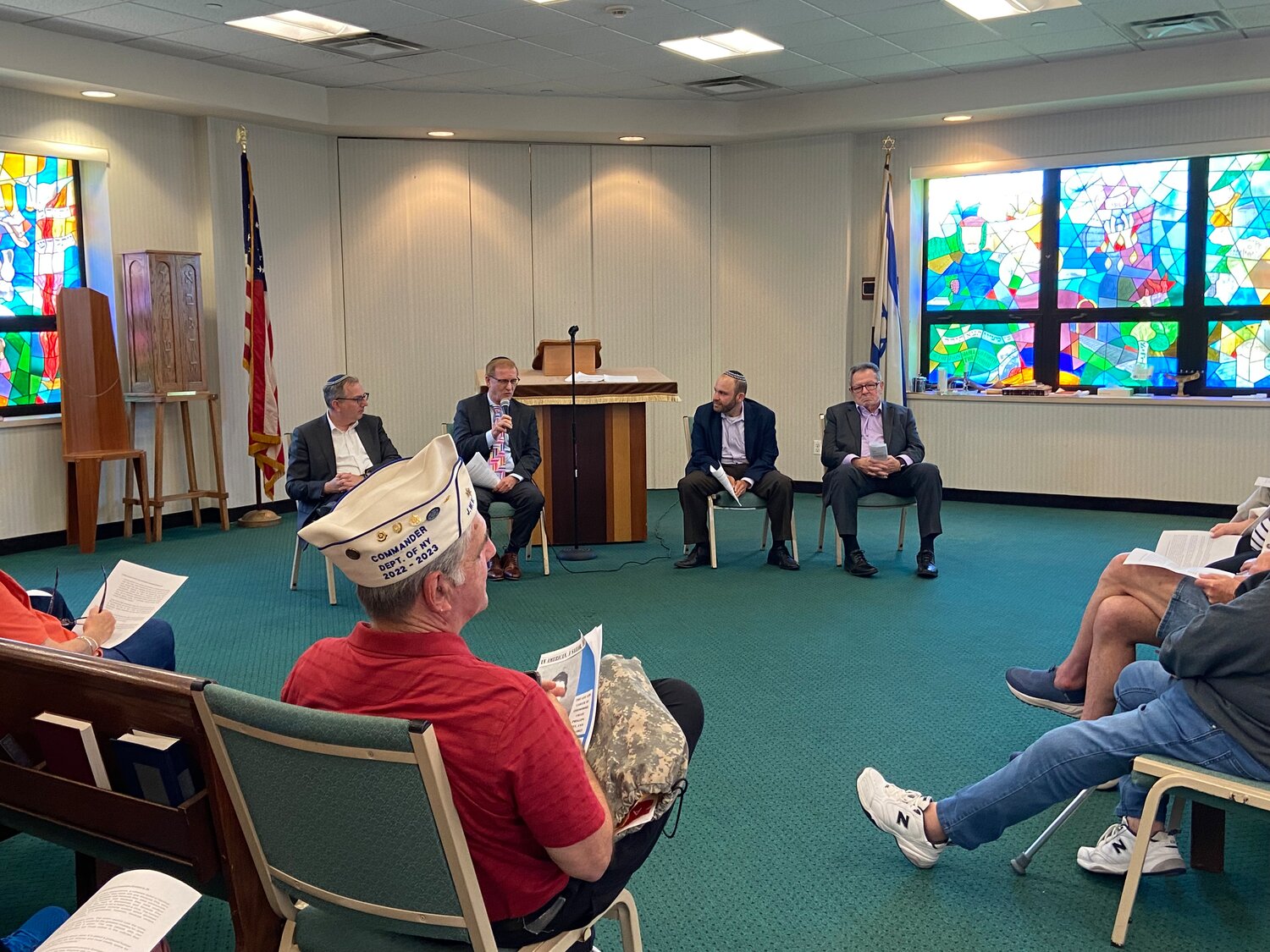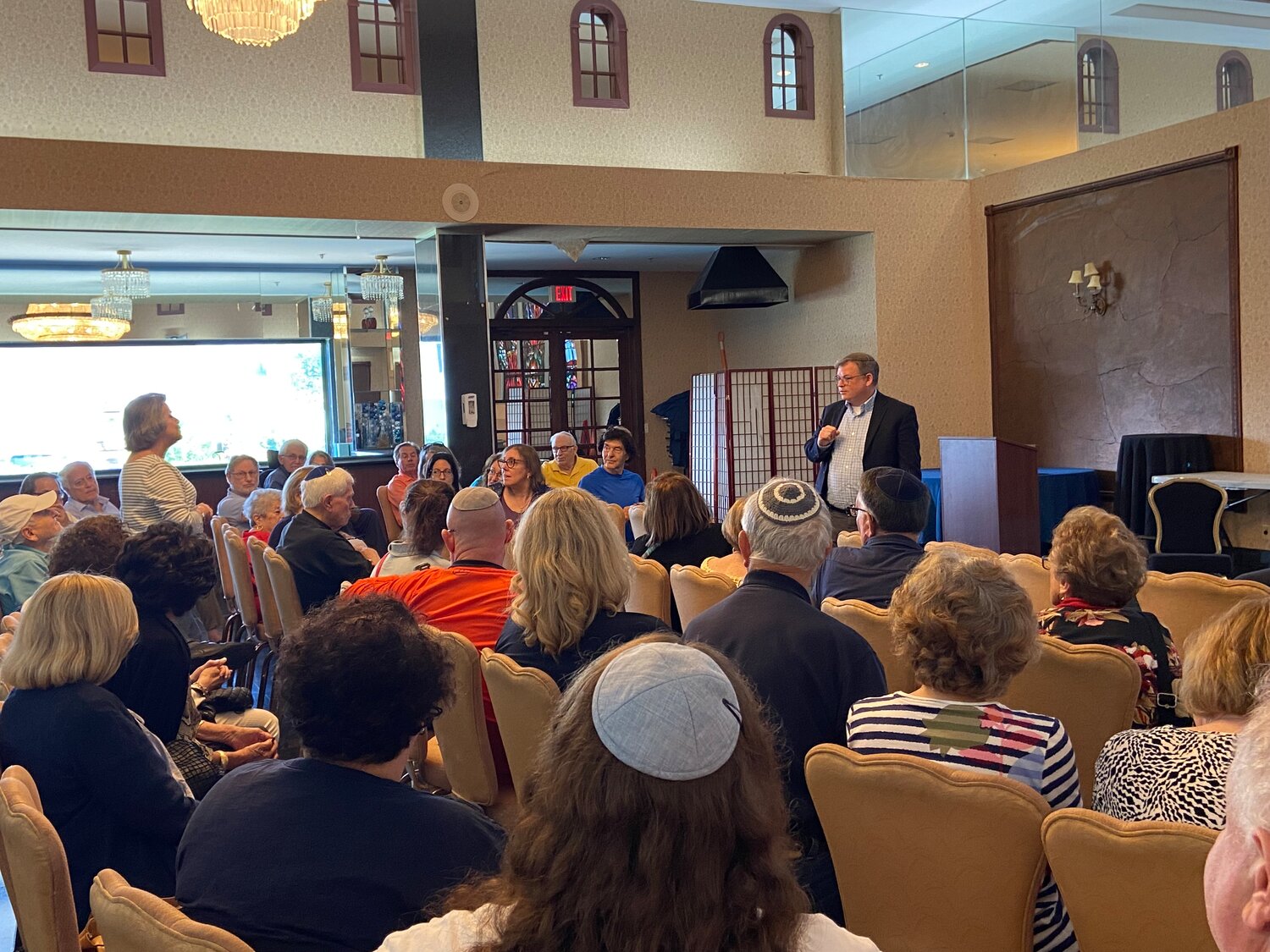Saturday, April 27, 2024
Coming together to combat hate: Read about how South Shore synagogues met to discuss antisemitism and come up with solutions
The Anti-Defamation League has 25 regional offices operating in local communities and through programs and advocacy in Europe and Israel, according to its website. Each office focuses on reporting and responding to antisemitic and hate incidents, speaking out against all forms of bias and bigotry, engaging elected officials, educating, and partnering with and training local law enforcement.
To make a report visit, NYNJ.adl.org.
Eleven people were murdered on Oct. 27, 2018, in the Tree of Life synagogue in Pittsburgh, just for being Jewish. It was the event that changed synagogue life forever, according to Ian Brecher, executive vice president of the Oceanside Jewish Center.
With Jewish communities on the South Shore and beyond seeing an uptick in antisemitism, seven local synagogues came together to host a seminar on how to properly handle and address any antisemitic acts and comments that people may be experiencing, and to hopefully stop any events like the mass murder at the Tree of Life synagogue from happening again.
East Meadow Beth-El Jewish Center, Oceanside Jewish Center, Merrick Jewish Centre, South Baldwin Jewish Center, Congregation Beth Tikvah in Wantagh, Congregation B’Nai Sholom-Beth David in Rockville Centre, and Congregation Beth Ohr in Bellmore have always worked together on issues that each congregation was facing — and antisemitism is no different, Howard Tiegel, president of the Merrick Jewish Centre, said.
“Jews are a group of people that have always dared to be different,” Scott Richman, the regional director for the New York/New Jersey Anti-Defamation League, said. “A series of conspiracy theories or tropes began to develop around us, and those conspiracy theories are what we still live with today.
“When you talk about why there is antisemitism,” Richman added, “antisemitism is essentially just those conspiracy theories.”
Anybody can report incidents of antisemitism to the Anti-Defamation League, and someone from the office will respond and record the event. Richman said that 2022 was the worst year of recorded incidents, and each year appears to be getting worse.
New York has the most recorded antisemitic acts, and 72 of 111 assaults across the nation in 2022 took place in New York.
Attendees were invited to listen and ask questions at three breakout sessions — rabbinic responses to antisemitism, preparing for antisemitism on the college campus, and antisemitism in public schools.
Sofie Glassman, an incoming junior at East Meadow High School, shared her school experiences with antisemitism.
“Antisemitism is something that I have faced since the start of elementary school, when a girl on the playground told me that she didn’t want to play with me because I was Jewish,” Glassman recounted. “I knew that it was wrong, but I never really understood why, and when I brought it up to my Hebrew school teacher a few months later, she told me that that was something called antisemitism, which is something that I didn’t even know existed until then.”
Glassman, who is a congregant of East Meadow Beth-El, shared with the room that as she proudly displays her Jewish star necklace, it is usually met with a comment or two from classmates in the hallway. She’s witnessed swastikas in her school’s bathrooms, and heard classmates make jokes about gas chambers.
“The issue is most Jewish students are very, very, very scared to be open about their Judaism,” Glassman said. “A lot of that is very scary because every fiber of my being is being Jewish and that is something that comes first.”
In the rabbinic responses breakout session, Rabbi Ira Ebbin from Congregation Ohav Sholom in Merrick expressed that Jewish unity needs to be strengthened.
“I’m going to criticize all of us because as mentioned today, antisemitism incidents have been on the rise for 10 years,” Ebbin said. “It’s been rising in incidents, every year and every day, and the problem has been, and I criticize myself, that we didn’t say anything.
“Where were we when there were Jews being beaten up in Williamsburg, where were we when every day in Crown Heights, there were Jews being punched, and their beards being pulled,” he continued. “We didn’t say anything until Jews who look like us and happen to be that there was a synagogue like us — that’s when we spoke out.”
Rabbi Joshua Dorsch from the Merrick Jewish Centre told the crowd that strengthening Jewish unity will help, but that Jewish communities need to make allies with other communities.
On college campuses, there are resources for Jewish students, Dave Siegel, executive director at Hofstra University Hillel, said. The breakout session featured Jewish students from various campuses answering questions from parents in the audience on what they’ve experienced and how they’ve handled it.
“I think the biggest takeaway is strong Jewish identity,” Siegel said. “The idea that if we build a strong Jewish identity, we have the ability to understand what’s going on and be able to combat hate speech, because we have the information.”
HELP SUPPORT LOCAL JOURNALISM
The worldwide pandemic has threatened many of the businesses you rely on every day, but don’t let it take away your source for local news. Now more than ever, we need your help to ensure nothing but the best in hyperlocal community journalism comes straight to you. Consider supporting the Herald with a small donation. It can be a one-time, or a monthly contribution, to help ensure we’re here through this crisis. To donate or for more information, click here.
Sponsored content
Other items that may interest you











